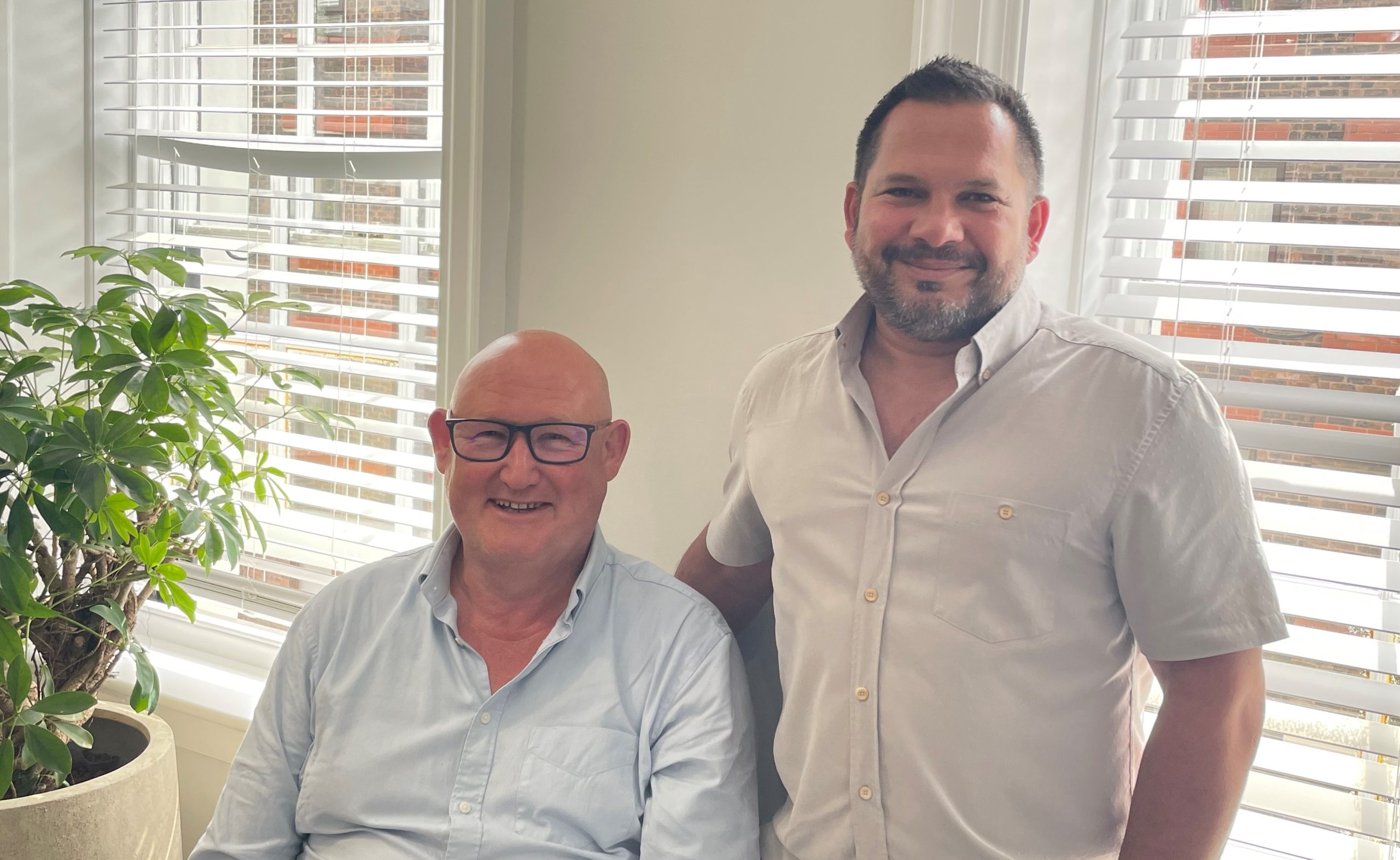OSA launches new commercial arm

Karl Jeebaun (right) with OSA chair, Roy Stoner
A new commercial arm for the Optical Suppliers Association (OSA) was launched to members at the OSA’s autumn meeting, designed to capitalise on emerging e-health technologies.
Opticare Innovations – a commercial enterprise which is a wholly owned subsidiary of the OSA – has evolved from the rapid growth of the Association’s E-Health Focus Group.
Karl Jeebaun, newly appointed CEO of Opticare Innovations, and previously chair of the E-Health Focus Group, explained the development: “We set up the E-Health Focus Group just over two years ago, but since then the opportunities to move forward with new technologies are proving to be enormous.
“DICOM, remote monitoring, stakeholder management, plus the concept of a Vision Passport, are just some of the paths for smaller tech companies to work together to create bigger solutions. We estimate that around 70 per cent of people pushed into hospital ophthalmology appointments do not need to be there, and with diabetic retinopathy screening at the top of the list.
“These developments are going to be commercial enterprises and as a Board, the OSA felt it was right that they should have their own dedicated space. The OSA’s function to represent all optical businesses in the supply chain remains unchanged,” added Karl.
The OSA’s Green Charter, and evolving sustainability targets for optics, will sit within the remit of Opticare Innovations. This is a significant aspect of the supply chain’s responsibility, believes the OSA and a journey which it is keen to share with all other aspects of optics UK to establish internationally respected industry norms.
“Levels one and two of the Green Charter are the gateway into sustainability and are a stepping stone into NHS procurement,” Karl explained. “Companies that achieve levels one and two are well ahead of the NHS Evergreen Plan. We have devised this to be an essential element for optical businesses that are looking to get a carbon reduction plan in place.”
Members at the OSA’s autumn meeting also heard details of how RecycLine, a commercial company, is working with independent practices and chains to reduce landfill from the optical supply chain.
David Wotton, RecycLine materials solutions manager, said: “We are recycling two to three tonnes of healthcare blister packs a week, but the same volume in a month for frames. We can only imagine that a lot is still going to landfill. We have got to clean up the industry.”
The company’s National Spectacle Recycling boxes, designed to encourage in-practice collections, allow the breakdown of acetates, metals and lenses at the company’s Essex facility. Many of the acetate granules are used as ground stabilisation products in construction, but the company is keen to find a route to using this material to manufacture new spectacle frames.
Finally, Celsa Vazquez and Marlon Cera-Marle outlined details of the acquisition of 100% Optical by Closer Still Media. They told delegates that this was “a positive move and the company’s experience in healthcare, particularly the dentistry show, would bring fresh ideas and is set to enhance 100% Optical and 100% Ophthalmology”. Celsa, with her extensive knowledge of the optical sector, is remaining with the show, moving across to the new company.
The OSA’s next event is its AGM and Christmas lunch on 6 December in London.